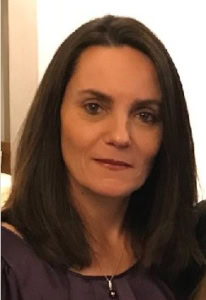Procuring social value can change lives
By Professor Jo Meehan and Clare Westcott
This is a bold statement, and many would agree. But if we delve deeper, what is the most important word in that statement? Is it “Procuring?” “Change?” Lives?” “Social?’ “Value?” No. The word that carries the most weight is “can”. This small, often overlooked word is doing all the heavy lifting. It represents potential, and crucially, the gap between intention and impact.
UK social value legislation has been around for over a decade but is still contested. At the heart of the debate is the concept of value itself. Traditionally, value in procurement has been understood in economic terms—benefits or outcomes delivered from an exchange. This narrow view, driven by economic measures of success and contract timelines, fails to account for meaningful change for marginalised communities, or the broader contribution suppliers make, beyond the paperwork. Despite years of social value efforts, spatial inequalities, child poverty, absolute poverty, and other deprivation measures continue to rise, year-on-year. This doesn’t mean that social value initiatives have failed to improve individual lives, but the persistence of deprivation demands a re-evaluation of how we approach social value in procurement.
True social value should not be an add-on to procurement; it should be integrated into how all decisions are made. This requires a fundamental shift in our approach, recognising the need for long-term, sustainable impact, beyond contractual timeframes. The supply chain and communities need to be integrated into the conversation.
Why is this so difficult? Our recent research at the University of Liverpool Management School’s Centre for Sustainable Business sheds new light on how and why organisational approaches can generate very different outcomes.
Our research shows that the very nature of contracts is problematic. In contracts, two parties negotiate the distribution of costs and value. The intended beneficiary of social value – usually a community – is a third party not involved in the negotiations or contractual obligations. As a result, delivering social value is often treated as an additional cost, typically borne by suppliers.
Procurement can create the right incentives—or disincentives—towards achieving societal goals. Imagine a procurement process that incentivised collaboration and resource sharing between suppliers to build local supply resilience and a sharing economy. Or one that actively shaped supply markets by rewarding purpose-led suppliers committed to fair wages and supply chain transparency, or schemes to train and recruit care leavers or other disadvantaged groups. Critically, the unheard voices of society need to inform procurement design if optimal outcomes are to be achieved. Whilst the buyer, as the public authority, is accountable for these long-term outcomes, it is society that will ultimately judge their success.
This shift is not without its challenges. A procurement process that is too simplistic risks commodifying social value, reducing it to tick box metrics whilst failing to drive meaningful change. Conversely, overly complex procurements can alienate SMEs or expect suppliers to tackle entrenched social issues.
This transformation is not just about doing business differently; it’s about redefining what business should achieve. Social value should drive us towards a more inclusive and just way of operating—one that addresses systemic inequalities and strives for better futures.
But it can, and is, being done. Our research found cases where social value drives every decision, every contract, and every partnership. By embracing the potential of what “can” truly means, we can transform procurement into a powerful tool for creating a fairer, more inclusive society.
Professor Jo Meehan is a Professor of Responsible Procurement and the Director of the Centre for Sustainable Business at the University of Liverpool Management School, and a visiting professor at Lappeenranta-Lahti University of Technology in Finland. Jo’s research centres on modern slavery in supply chains, social value in public procurement, and power. It explores commercial practices that allow social inequalities and environmental harm to persist, and crucially, what might be done to enable systemic change. Her work has won numerous international awards, and she is a regular public speaker committed to challenging business responsibilities and delivering impactful research. Prior to joining academia, Jo had extensive procurement experience in the private sector working for a global blue-chip company.
Clare is currently undertaking a PhD at the University of Liverpool, having recently completing her MBA at the Management School. Her research examines the operational barriers to delivering social value within public procurement by exploring the policies and practices in both commissioning and supplier organisations.
As a chartered accountant Clare’s professional life was spent in senior management roles across the Finance and HR functions for Eli Lilly & Co. Ltd and Novartis. Experience in the public sector was gained as a non-executive director for Southport & Ormskirk Hospital NHS trust, where she chaired the finance committee. She is a member of Social Value UK’s advisory board and has recently been elected as a trustee of North Sefton District Scouts, a role which blends her business experience with providing opportunities for young people in our region.
Clare is passionate that research should generate meaningful action and is looking forward to the role the Centre for Sustainable Business will play in inspiring debate and knowledge exchange.






